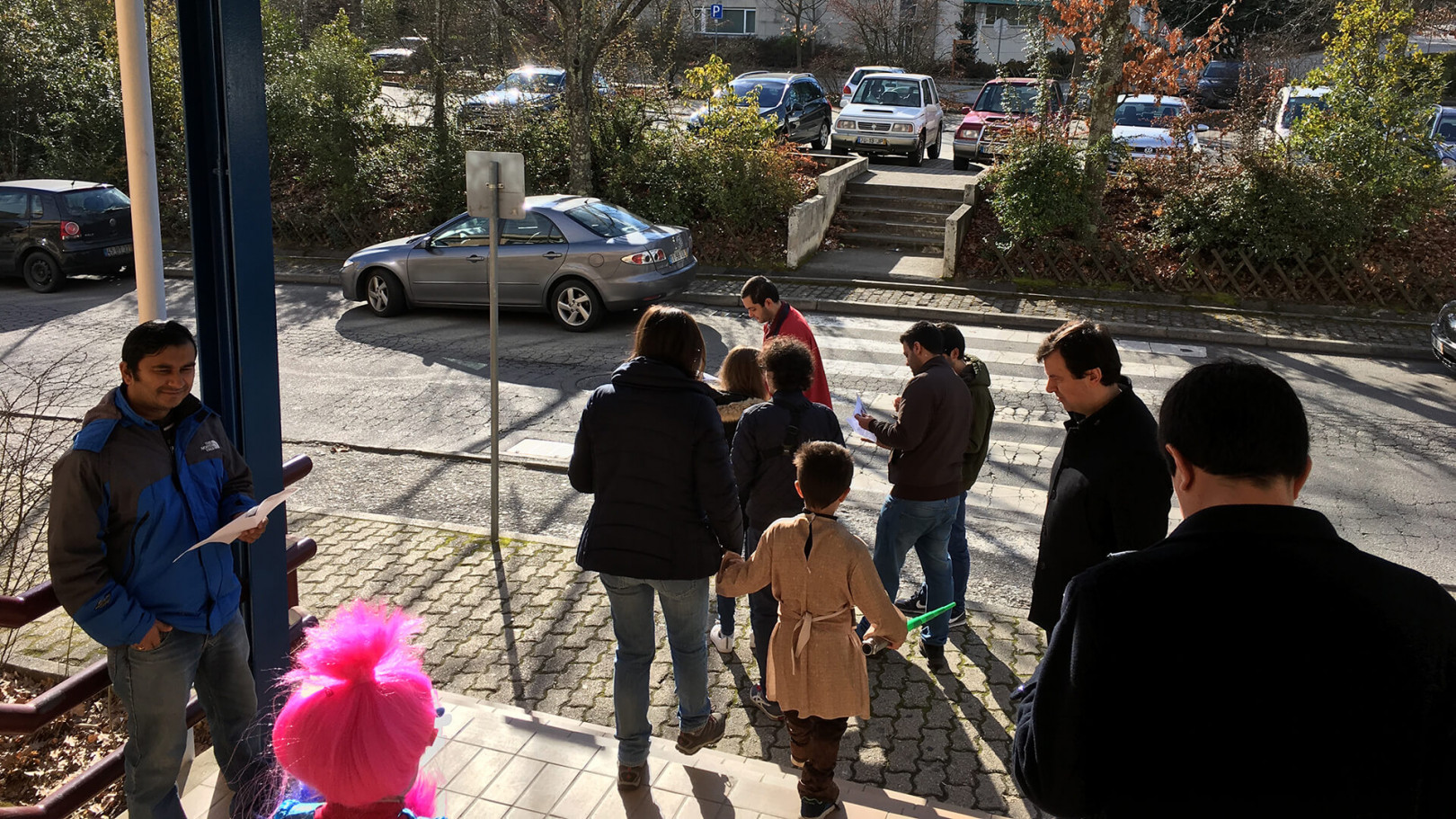INESC TEC participated in an European event with pervasive learning games
«How do flowers play?». This was the title of the activity promoted by INESC TEC’s Centre for Information and Computer Graphics Systems (CSIG) regarding the European project BEACONING (Breaking educational barriers with contextualised pervasive and gameful learning).
09th March 2018
On 10 February, and in cooperation with Botanical Garden of Porto, the educational event with games was opened to all participants. Children and grown-ups were invited to make a journey in order to explore the place, see flowers, trees, shrubs and weed species, among other plants.
The participants had the help of two characters, «The Bronze Boy» and Sword Lily of Sophia de Mello Breyner’s well-know book with the same name (»Rapaz de Bronze», or »The Bronze Boy»). By using mobile phones and a simple web application, which uses geo-localization technologies, the participants made progress in the game as they moved to each designated location and solved little challenges. The purpose was to learn something about the place and get the tips to find the next ones.
Likewise, an educational game of exploring this place took place at the University of Trás-os-Montes e Alto Douro (UTAD), in which participants had to discover environmental pollutants. The interaction at UTAD raised a number of urban questions, in a game where children sought virtual facilities of a (fictional) criminal organization. This organization was responsible for the environmental pollution and the participants had to address the threat, through geo-localization technologies.
This initiative happened simultaneously in 15 different cities all over Europe. INESC TEC participated with two events in two different locations: Botanical Garden of Porto and UTAD campus (in Vila Real).
The main purpose of the Beaconing project is to create new teaching and learning methods and practice, promoting the inclusion of people with special needs.
In this €5.9M project, researchers aim to create pervasive games that not only communicate entertainment content but also educational content. The pervasive games are more than just a game. They can be used in a classroom, the student’s home or in the city that he lives in. A platform will be developed in order to manage automatically mobile apps with pervasive games, according to the teachers' own description. So they will challenge and question their students and the app will be integrated with existing educational tools and services in the organisations participating in the project.


